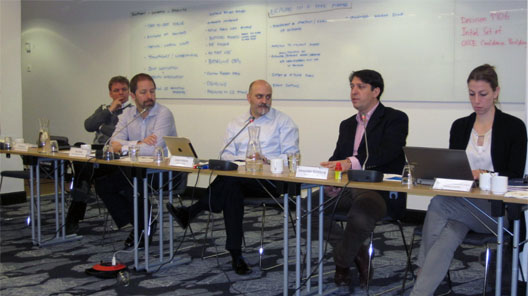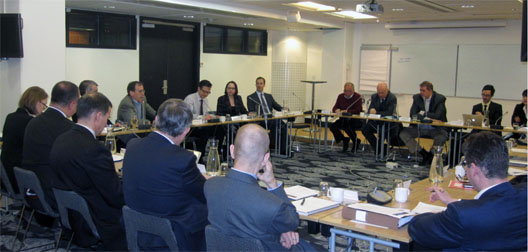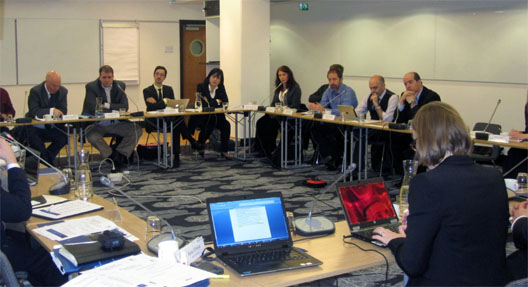NATO advanced research workshop on “Confidence-Building in Cyberspace ” was hosted by the Swedish Institute for National Defense and Security Policy Studies, the Swedish National Defense College, and the Atlantic Council’s Cyber Statecraft Initiative March 25 – 27, 2014.
The event was supported by the NATO Science for Peace and Security Programme (SPS) which seeks to enhance cooperation and dialogue on emerging security challenges by gathering insights from member states and partner countries. SPS initiatives are aligned with North Atlantic Treaty Organization (NATO) strategic objectives and focus on projects in direct support to NATO’s operations.

The workshop convened twenty six experts from sixteen countries discussing confidence building measures (CBMs) in cyberspace. H.E. Sorin Ducaru, NATO Assistant Secretary General for Emerging Security Challenges delivered the workshop keynote, addressing NATO’s cyber defense framework, governance mechanism, and partnerships.
The workshop included expert presentations, followed by a discussion on three key issues :
- Confidence building measures leading to restrains in behavior of States in cyberspace
- Confidence building measures through which States can de-escalate conflicts in cyberspace
- Confidence building measures through which the private sector can de-escalate conflicts in cyberspace
The discussions drew upon the existing work by ICT4Peace, OSCE, CCDCOE in the area focusing on fully developing a smaller number of specific CBMs. The deliberations led to in-depth discussions, in smaller groups, on selected CBMs. The experts formulated three sets of measures, including concrete steps for their development and implementation.
- Restraint CBMs that aim to achieve strategic restraint with respect of objects of cyber attacks.
- Communication and Crisis management CBMs which would support establishment of permanent mechanisms of communication and engagement.
- Technical CBMs which would lead to development or enhancement of existing frameworks to utilize the wider security research community for maintaining and improving the baseline security and resilience of the common Internet.

Details of deliberations and results of the workshop are available for download.

